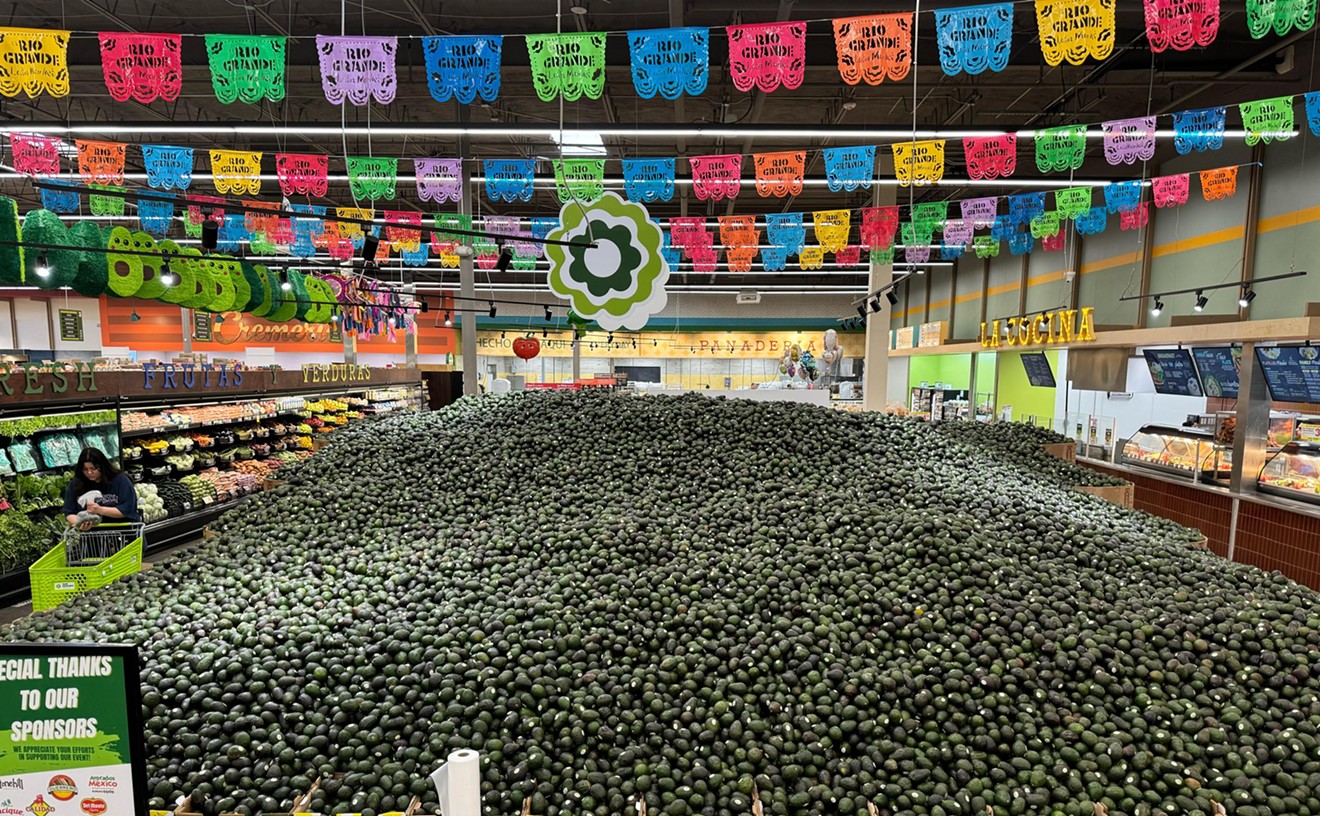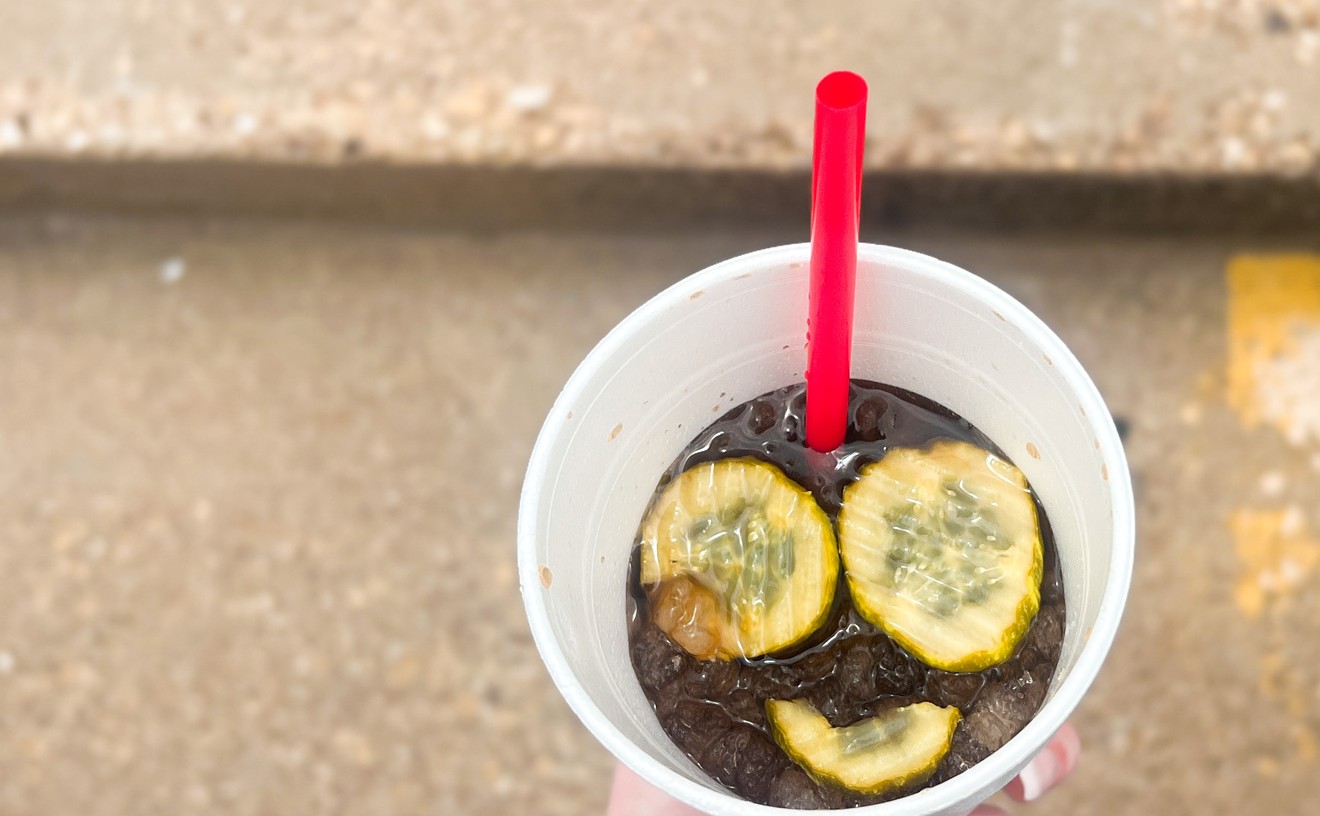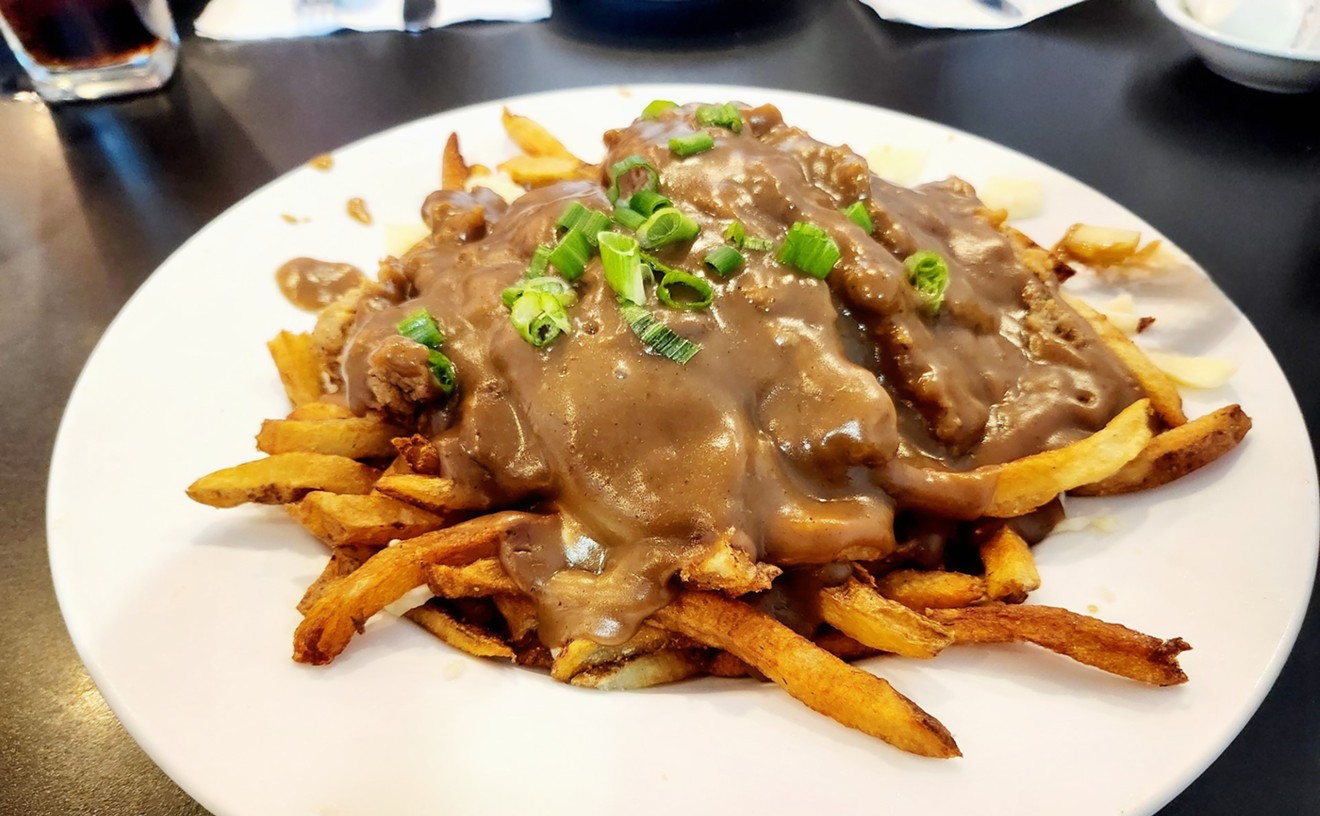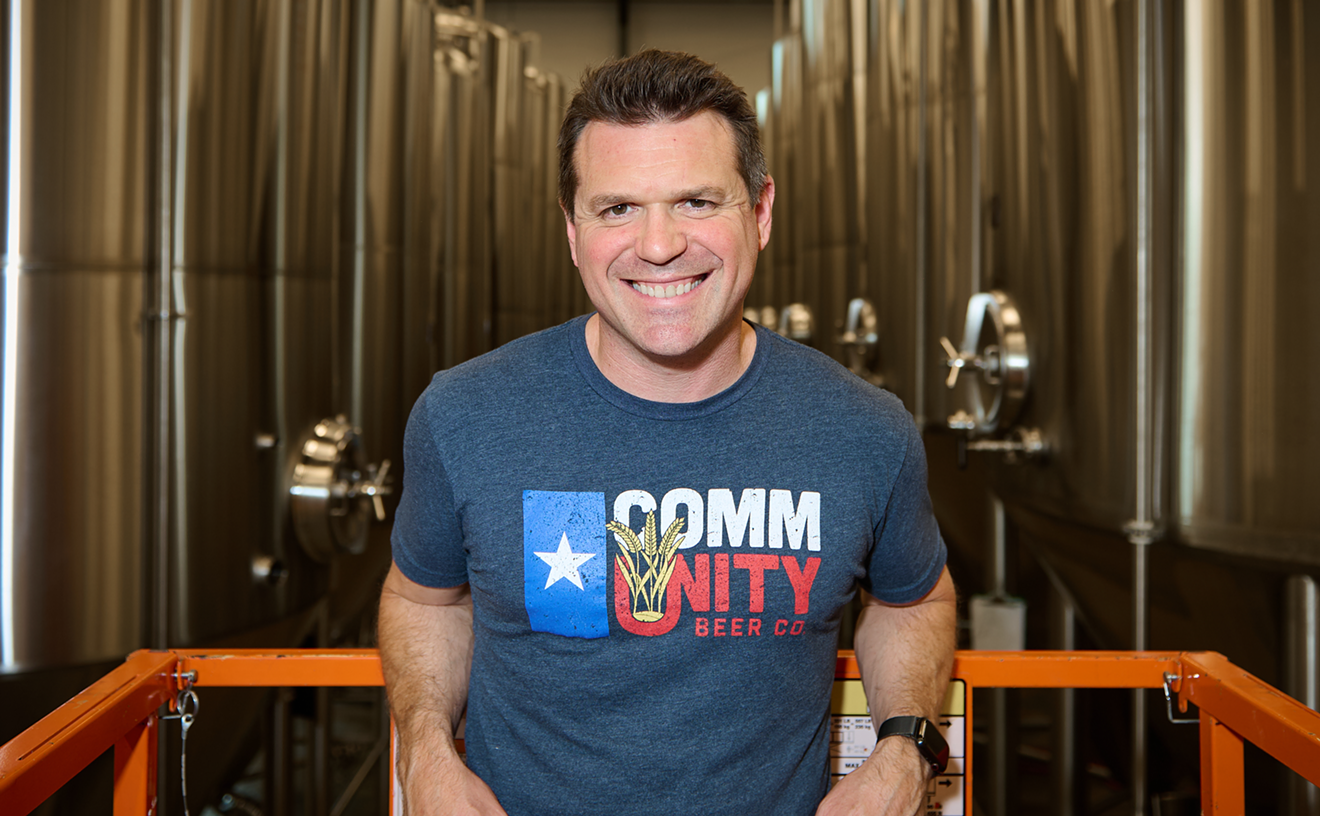America's number one source of minor heart palpitations just got a little more expensive. Food manufacturer J.M. Smucker recently announced a 9-percent price increase for Dunkin Donuts and Folgers (the bestselling brand in the U.S.) coffees.
Thanks to stockpiles of Arabica, Smucker has been able to delay passing costs onto customers since April, when the price of coffee futures spiked in response to a drought that sucked prime coffee-growing real estate dry in Brazil and a fungus called la roya or "rust," which took up residence at coffee farms throughout South America.
See also: Dallas' Five Best Coffee Shops
We get it, Mother Nature, you're a tea person. And thanks to you the day when coffee-lovers have to pour more change into their home-brewed cup is nigh.
Shannon Neffendorf, co-owner of Oak Cliff Coffee Roasters, says local coffee-shop frequenters won't likely feel the effects -- not yet, anyway. He says the price consumers pay for coffee at grocery stores or fast-food chains is determined by the rise and fall of the market, whereas his prices reflect his relationships with suppliers. "We contract directly with farmers, so none of our prices have been affected," he says.
That's not to say that roasters are immune, however. "Everybody's affected by the market, it's just that we're pretty removed from it," says Neffendorf, who explained that there is more than one way to skin a coffee bean. "What companies like Folgers or McDonalds do is buy on the commodity market, so their coffees are really close to that c-price. What most smaller roasters do is where you're still tied to the market but you're buying coffee at a smaller differential. So you're paying whatever the market price is plus $1.10, and if the market goes up that differential will go down. Then the third way is buying direct through producers."
It is the latter option that Neffendorf prefers, as it allows him to focus his efforts on coffee and cultivating relationships with the people who produce it. He cites one farm in El Salvador, Finca Las Mercedes, where he and the farmer have been working together for a few years.
"Last year we started talking about contracts and pricing for the crop that is finishing up as we speak. For us, the relationships trump the market. That's why we buy coffee the way we do. Knowing that I'm going to get great coffee every year and they're going to get my business every year, that creates stability."
Jonathan Meadows, co-owner and green bean buyer for Cultivar Coffee, shares Neffendorf's commitment to directly buying, roasting and brewing high caliber beans. Whereas coffee traded on the commodity market is ranked based on visual characteristics - size, color, etc. - coffee bought directly from producers is graded according to taste on a scale of 0 - 100. Coffee is considered premium when it ranks 84 or higher, and Meadows says he only likes to buy 86 or above. "We hope to get closer to a 90."
In short, he, like Neffendorf, is accustomed to paying big prices for beans. So while consumers can expect to pay more for workhorse favorites like Folgers, the coffee that is the culmination of passionate buyers, obsessive roasters and baristas that force foam to submit to their dove-shaped desires, will remain largely the same (albeit high) price, at least for now.
"Prices for green coffee that we've purchased in 2014 have been about the same as 2013," Meadows says. "And I haven't seen anything yet that says that we're going to have to raise our prices. But I will say this, we're not afraid to. If something increases so drastically that we're going to go under if we don't start charging more then we will raise prices."
So take heart, Dallas coffee snobs, you shouldn't have to get a second mortgage anytime soon. "Farmers feel like we're at the tail end of thing, like this was the worst of it. They're optimistic and they feel like everything's getting under control," says Neffendorf. As for Meadows, he's watching and waiting for the next round of climate cluster-fucks: "It's something that we deal with on a daily basis. In many ways we depend on waiting on the next harvest to see if it's going to turn out. It's kind of an exciting and scary thing at the same time."










